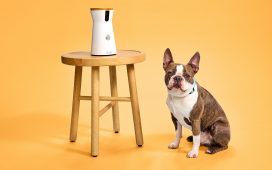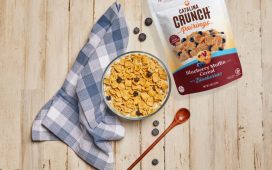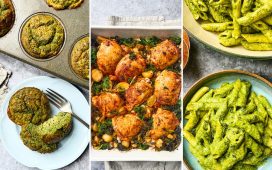CHICAGO — Last year marked the return of the blockbuster new product launch, according to Information Resources, Inc.’s annual New Product Pacesetters report.
Top-selling 2019 food and beverage launches included Bang Energy with $299 million in sales, Enfamil NueroPro baby formula with $231 million, PepsiCo’s G Zero with $154 million, PepsiCo’s Bubly sparkling water with $116 million, Arnold/Brownberry/Oroweat Sandwich Thins with $103 million and Corona Premier with $102 million.
The last time the food and beverage category had at least six products break the $100 million mark was in 2012, IRI said. Several top selling non-food and beverage products also earned more than $100 million.
“It’s not just that these products eclipsed the monumental $100 million plateau, but this year’s 10 $100 million-plus launches account for 33% of all Pacesetter dollars, accentuating that big is back,” said Joan Driggs, vice president of content and thought leadership for IRI.
Rounding out the top 10 food and beverage Pacesetters were SlimFast Keto with $76 million in sales, Perdue Simply Smart Organics with $71 million and Kellogg Co.’s Pop-Tart Bites with $68 million.
Small companies also found success, with 53% of New Product Pacesetters coming from companies with less than $1 billion in sales. Successful launches from small companies, including Kodiak Cakes Power Waffles and chickpea-based Banza noodles, were driven in part by the “Shark Tank Effect,” IRI said.
“If only one thing is true about New Product Pacesetters year in and year out, it’s that the formula for a winning product, no matter the size of the company, is having the right product in the right place at the right time for the right consumer,” Ms. Driggs said. “This year’s New Product Pacesetters stand true to that testament, with both small and large brands achieving success thanks to smart distribution strategies and personalized targeted marketing initiatives.”
The natural and non-GMO ingredients trend was evident in the report, with three of the top food and beverage launches offering a non-GMO claim.
A brand that exemplifies innovation and better-for-you attributes, Enfamil NeuroPro, was No. 2 on the food and beverage Pacesetter list. The baby formula features milk fat globule membrane, which is found in breast milk and supports cognitive development in brain structure and function. The formula was the first major scientific enhancement in the baby formula market since DHA fortification became FDA-approved more than two decades ago.
Several Rising Stars, including Mochi Ice Cream Co.’s My/Mo ice cream bites, HP Foods’ Planet Oat plant-based milk, Unilever’s Talenti Gelato Layers and The Wonderful Co.’s No Shells Pistachios also offer a non-GMO or natural ingredients claim.
Monster Beverage Co.’s Monster Energy Ultra Paradise and Reign Total Body Fuel also ranked among the Rising Stars, along with Red Bull Peach Edition and Spindrift sparkling water. Rounding out the list of products powering their way to Pacesetter status was PepsiCo’s Ruffles Double Crunch and Smithfield Foods’ Prime Fresh Delicatessen.
Products identified as Rising Stars historically have made the leap to Pacesetter status, but the report warned the future may be more uncertain under a new post-COVID-19 normal. Product-launch timetables may play a more significant role in the coming years because of long-term effects from changed COVID-19 behaviors, IRI predicted.
Around a third of food and beverage Pacesetters achieved 30% distribution in the first quarter of the calendar year. The timing has held true year-after-year, meaning most innovation for 2020 is already on the market facing unanticipated challenges.
Manufacturers and brand owners should closely monitor production, distribution and the ability to source ingredients in a taxing supply chain, IRI said.
“Innovation will happen, but the key is to identify where the focus should be,” Ms. Briggs said in the report. “Moving forward, pack size, packaging function and certainly hygienic value-adds such as single-serve or portioning capabilities will garner interest. Attributes that were highly acclaimed in 2019 and justified their price tag with consumers, such as sustainable or organic, may have to fight a little harder to earn the purchase in a tight economy. In addition, attributes that matter to consumers may shift. And COVID-19 shopping behaviors, including fewer trips but bigger baskets, may stick with us, limiting exposure to new products.”








